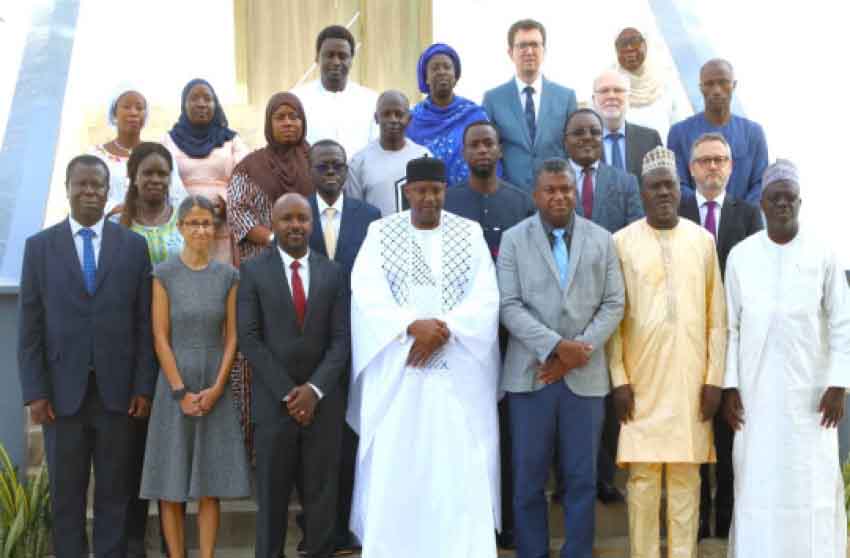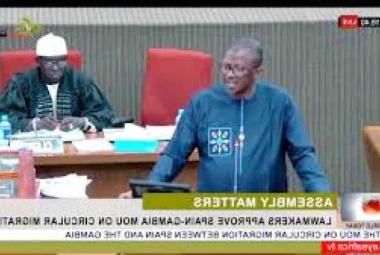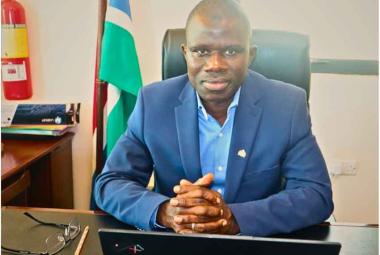By Lamin Kujabi
A delegation from the International Atomic Energy Agency (IAEA) is in The Gambia to assess the state of cancer disease in the country and the control mechanisms in place.
On Friday, 22nd March the Health Minister led the delegation to the State House for an audience with the President of the Republic, His Excellency Adama Barrow.
Head of the delegation, Dr. Alfred Mr Alfred Karagu affirmed that the team comprised of representatives of the three United Nations agencies of IAEA, WHO, and the International Agency for Research on Cancer; and that their mission is to work with The Gambia in assessing the capacities and the needs for improving the country’s cancer control infrastructure.
“Upon the request of The Gambia in October last year, we have been working with the Ministry of Health, with selected team of national experts in preparation for this mission,” he informed.
He noted that their main objective is to understand some of the constraints that the country is facing in terms of addressing cancer disease comprehensively; including all elements of cancer control, prevention, diagnosis, treatment and palliative care; as well as identify potential areas of collaboration between the country and the three UN agencies.
President Adama Barrow welcomed the initiative and underscored the need for concerted efforts in tackling a growing cancer burden to make a more significant impact on the lives of people with cancer. He urged all the stakeholders to work together to sustain life-saving opportunities for all those who are impacted by cancer.
Honourable Dr. Ahmadou Lamin Samateh, Minister of Health, said: “We all know that the incident of cancer is increasing in many developing countries and The Gambia no exception. Many of our countries have been seeing rise in Non- Communicable diseases, cancer being one of them. Our countries have a double bounding of both communicable and Non-communicable diseases”.
He pointed out that a lot of cases of cancer mortality in the country is as a result of the late arrival of these patients to the health facilities. “We have also realised that there is high incidents of cervical cancer and breast cancer in the country among women”.
He also mentioned the rising incidents of other cancers like liver cancer, lung cancer, and prostate cancer, among men.
The Health minister went on to highlight some preventative strategies adopted by government; such as setting up of a cancer control programme unit in the Ministry, which does advocacy and sensitization about the disease. He however mentioned lack of radiotherapy facility as one of the biggest challenges.
He thanked the First Lady Fatoumata Bah-Barrow for her support and the delegation for making the mission a reality.







